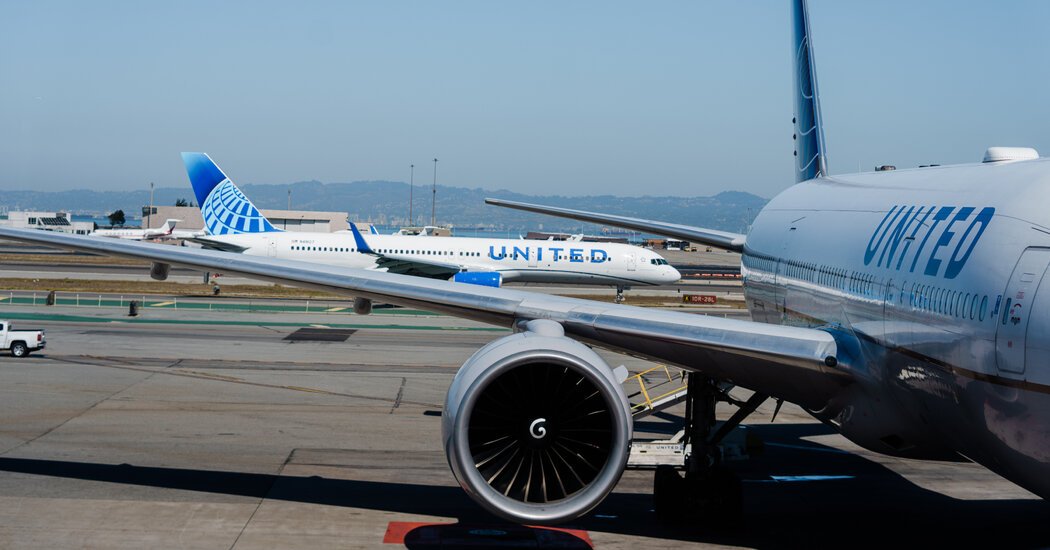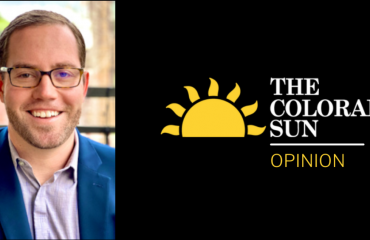United Airlines Cuts Flights as Workers Call Out Sick – The New York Times
Advertisement
Supported by
United Airlines’ chief executive said that 3,000 workers recently tested positive and that it was cutting its flight schedule to manage the shortage of workers.
Send any friend a story
As a subscriber, you have 10 gift articles to give each month. Anyone can read what you share.
By Niraj Chokshi
In a single day over the holidays, nearly a third of United Airlines employees called out sick at Newark Liberty International Airport, a major hub for the airline, the company’s chief executive said on Tuesday.
That disclosure, in a memo to staff, helps to explain the industry’s recent struggles. Storms disrupted flights by delivering whipping winds, rains and heavy snowfall at airports nationwide, and the fast-spreading Omicron coronavirus variant compounded the havoc by sickening thousands of airline workers, leaving many travelers stranded and angry.
Overall, about 3,000 United employees — more than 4 percent of the airline’s work force — have recently tested positive for the coronavirus, the company’s chief executive, Scott Kirby, said in his memo. The vast majority are not working, and United is cutting its flight schedule to manage the shortage.
“Our frontline teams continue to put in a tremendous effort during what I know is an incredibly challenging and stressful time — the Omicron surge has put a strain on our operation, resulting in customer disruptions during a busy holiday season,” Mr. Kirby said.
United’s experience is not particularly extraordinary, and two other companies have canceled many more flights. All told, the industry has canceled more than 29,000 flights, or about 8 percent of all scheduled trips, since Dec. 25, according to FlightAware, a data tracking service. Many airlines say the virus is at least partly to blame.
The problems began to mount in the days before Christmas. That week, several top Delta Air Lines executives sent a letter to the Centers for Disease Control and Prevention asking it to shorten the isolation period for fully vaccinated people infected by the virus, warning that the agency’s recommendation of 10 days would leave the airline without enough workers during a crucial period.
“Similar to health care, police, fire and public transportation workforces, the Omicron surge may exacerbate shortages and create significant disruptions,” the executives, including Delta’s chief executive, Ed Bastian, wrote in the Dec. 21 letter.
Cancellations topped 1,000 each day from Dec. 26, when heavy snows and bitter cold wreaked havoc on the Pacific Northwest, through Dec. 31. During that period, JetBlue executives told employees in a memo, the airline received “record-breaking sick calls.”
On Dec. 27, partly as a result of requests like the ones made by Delta Air Lines as well as some public health experts, the C.D.C. shortened its recommended isolation time for people who have been fully vaccinated to five days.
But the change in health guidance would not give airlines much relief, at least not right away. The weather — and the flight cancellations — continued to get worse, peaking on Jan. 3, when airlines canceled more than 3,100 flights, or about 13 percent of all scheduled trips. It wasn’t until Monday that the number of daily flight cancellations fell below 1,000. In recent days, airlines have canceled many flights proactively to get a better handle on their operations and avoid surprising customers with last-minute changes.
Bad weather and staffing problems hit different airlines at different times. Since Christmas, SkyWest Airlines, which operates shorter flights for major carriers, including United, has canceled more than 5,100 trips, more than any other airline. Southwest Airlines was close behind with more than 4,800 canceled flights, followed by United, with over 2,800 cancellations, and Delta, with more than 2,000.
Airlines have generally provided brief public explanations, and representatives for several companies, including American Airlines, Delta and Southwest, declined to elaborate on Tuesday.
In statements, SkyWest has blamed “a surge in Covid cases,” while Southwest said over the weekend that it was “experiencing an uptick” in sick calls and quarantines. The airline said on Tuesday that its operations were improving as it overcame the effects of a winter storm that slammed the East Coast, including its hub at Baltimore/Washington International Airport, at the start of the month.
Like United, several airlines have started to prune flights this month to ensure they have the resources available to address the holiday disruptions and prevent further disarray. JetBlue said it would pre-emptively cut about 1,300 flights in the first half of January. Alaska said in a statement recently that it would slash about one in 10 flights planned for the month to gain “the flexibility and capacity needed to reset.”
Flight cancellations have continued this week, though the number has fallen steadily in recent days. More than 700 flights on Tuesday were canceled, about 150 of them operated by United.
Several airlines have also adjusted their policies for infected employees to align with the new C.D.C. guidance, but the shortened isolation time is fueling debate within the industry. The Association of Flight Attendants-C.W.A., which represents nearly 50,000 flight attendants at 17 airlines, has urged health officials and airline managements to maintain the 10-day isolation period.
The latest Covid data in the U.S. As the Omicron surge causes case counts to reach record highs and hospitalizations to surpass last winter’s peak, here’s how to think about the data and what it’s beginning to show about Omicron’s potential toll and the growing gap in those vaccinated vs. unvaccinated.
Biden administration’s response. At a Senate hearing, Dr. Anthony Fauci and the heads of the C.D.C. and F.D.A. defended the administration’s efforts to protect Americans against Omicron as they faced withering accusations about scarce Covid tests and confusing guidance.
Schools. As millions of students head back to their desks — Los Angeles started classes Tuesday and Chicago will reopen schools Wednesday — the testing that was supposed to help keep classrooms open safely is itself being tested as many districts struggle with execution and resources.
Around the world. The W.H.O. warned that more than half of people in Europe could be infected with Omicron in the next six to eight weeks. In Britain, Prime Minister Boris Johnson is again accused of violating his own lockdown rules after hosting a party at 10 Downing Street.
Staying safe. Worried about spreading Covid? Keep yourself and others safe by following some basic guidance on when to test and how to use at-home virus tests (if you can find them). Here is what to do if you test positive for the coronavirus.
“We believe this is the wrong move for aviation as it accepts that infectious people will be put back on the job or flying as passengers on our planes,” Sara Nelson, the union’s president, wrote in a recent letter to airlines. In interviews, several flight attendants also expressed concerns that contagious colleagues might return to work without being tested.
Delta’s chief legal officer sent a cease and desist letter to Ms. Nelson’s union last week, accusing it of spreading “false and defamatory information” about the airline’s virus policies. On Tuesday, Ms. Nelson responded in a letter to Mr. Bastian, saying the union has been truthful and accurate and accusing Delta of sowing confusion among staff after changing its policies multiple times.
Ms. Nelson’s union has been seeking to organize Delta flight attendants, the only such workers at a major airline not to be represented by a union.
The vast majority of employees at major airlines are vaccinated, but while the vaccines generally protect against severe illness, they haven’t completely prevented breakthrough infections. And even those who exhibit few or no symptoms but test positive often have to isolate at least for some time.
Mr. Kirby of United told his staff that despite breakthrough infections, United’s decision to require all employees to be vaccinated or secure an exemption was working. The company was one of the first large U.S. employers to implement a vaccine mandate.
No vaccinated employees are hospitalized, and the hospitalization rate among United employees since the mandate went into effect in the fall has been far lower than that of the general population, he said. Before the requirement, more than one United employee died each week from the virus, on average. The airline has gone eight weeks without a single virus-related death among vaccinated employees, Mr. Kirby noted.
“In dealing with Covid, zero is the word that matters — zero deaths and zero hospitalizations for vaccinated employees,” he said. “And while I know that some people still disagree with our policy, United is proving that requiring the vaccine is the right thing to do because it saves lives.”
Advertisement



